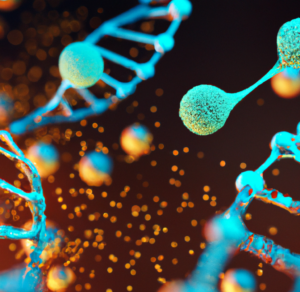Is addiction purely a result of personal choices or is there a genetic predisposition that plays a significant role? This question has long intrigued researchers, policymakers, and individuals affected by addiction alike. Exploring the interplay between genetics and addiction can offer valuable insights into understanding the complexities of substance abuse disorders and inform more effective prevention and treatment strategies.
Role of Genetics in Addiction
Genetics undoubtedly plays a crucial role in addiction. Studies have shown that genetic factors can contribute to about 40-60% of an individual’s vulnerability to addiction. This genetic predisposition can influence various aspects of addiction, including susceptibility to developing substance abuse disorders, response to treatment, and likelihood of relapse.
One of the key genetic factors associated with addiction is the presence of specific gene variants that affect neurotransmitter systems in the brain, particularly those involved in reward processing and reinforcement. For example, variations in genes encoding dopamine receptors, such as the DRD2 gene, have been linked to an increased risk of addiction. Dopamine is a neurotransmitter involved in pleasure and reward pathways, and alterations in its function can impact an individual’s response to addictive substances.
Moreover, genetic factors can also influence the metabolism and processing of drugs or alcohol within the body. Variations in genes encoding enzymes responsible for metabolizing substances, such as alcohol dehydrogenase or cytochrome P450 enzymes, can affect how quickly or efficiently the body breaks down these substances. Consequently, individuals with certain genetic variations may experience heightened sensitivity to the effects of drugs or alcohol, increasing their susceptibility to addiction.
Genetics Isn’t Everything
It’s important to note that while genetics can predispose individuals to addiction, environmental factors also play a significant role in shaping addictive behaviors. Factors such as exposure to stress, trauma, peer pressure, socioeconomic status, and availability of substances can interact with genetic vulnerabilities to influence the development of addiction. Therefore, addiction is best understood as a complex interplay between genetic predisposition and environmental influences.
Understanding the genetic underpinnings of addiction has significant implications for personalized prevention and treatment approaches. Genetic testing and screening can help identify individuals at higher risk of addiction, allowing for targeted interventions and early interventions. Additionally, knowledge of genetic factors can inform the development of more tailored pharmacological treatments that address the specific biological mechanisms underlying addiction.
Furthermore, addressing the genetic components of addiction can help reduce stigma and misconceptions surrounding substance abuse disorders. Recognizing that addiction has biological roots beyond mere moral failings or lack of willpower can foster empathy and understanding towards individuals struggling with addiction.
Addiction is Complex
In conclusion, the question of whether addiction is genetic is complex and multifaceted. While genetic factors undeniably play a significant role in predisposing individuals to addiction, it’s essential to recognize the interaction between genetics and environmental influences in shaping addictive behaviors. By understanding the genetic underpinnings of addiction, we can develop more effective prevention and treatment strategies that address the individual needs of those affected by substance abuse disorders.
If you or someone you know is struggling with addiction, don’t hesitate to reach out for help. Sarasota Addiction Specialists is here to support you on your journey to recovery. Visit our website at www.sarasotaaddictionspecialists.com or call us at (941) 444-6560 to learn more about our outpatient treatment programs and how we can assist you in overcoming addiction.






